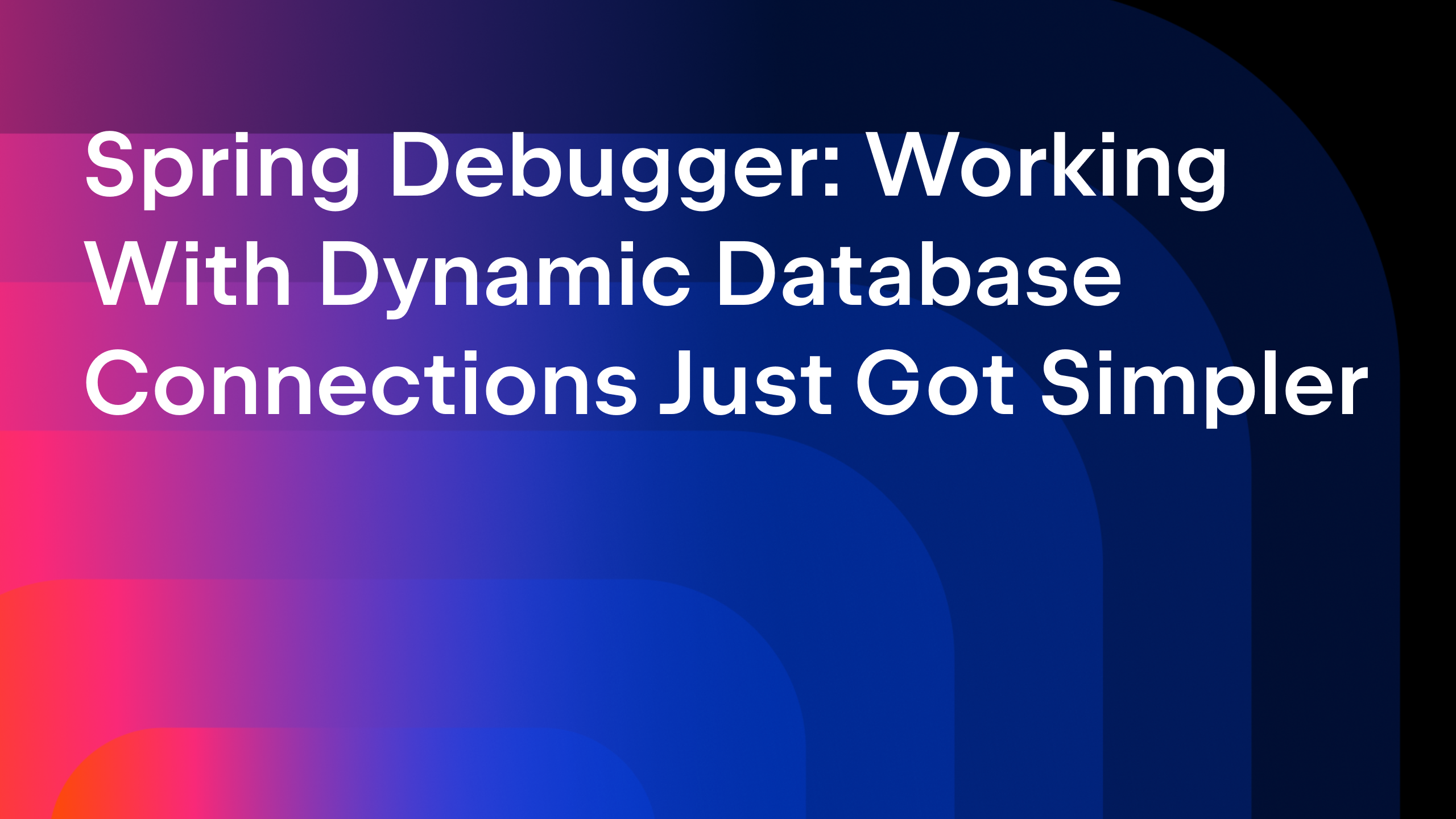IntelliJ IDEA
IntelliJ IDEA – the IDE for Professional Development in Java and Kotlin
The Early Access Program and Why You Might Want to Participate
The Early Access Program, or EAP for short, is an integral part of every development cycle for IntelliJ IDEA and other JetBrains products.
For us, it makes it possible to implement cool new features that you really need, polish the product, and deliver an IDE that developers love and trust. For you, it’s a chance to influence the future of the IDE you work with every day. By evaluating new features and sharing constructive feedback you get a powerful and reliable tool that you won’t want to work without. It’s a true win-win situation, isn’t it?
From day one, our mission was to craft the best tools for developers. With the Early Access Program you can join us in this effort! Be a part of the Team and join our EAP program!
Kirill Skrygan, Department Lead in IntelliJ
We’re launching our next Early Access Program for v2022.3 this week, so this blog post might get you interested in taking part!
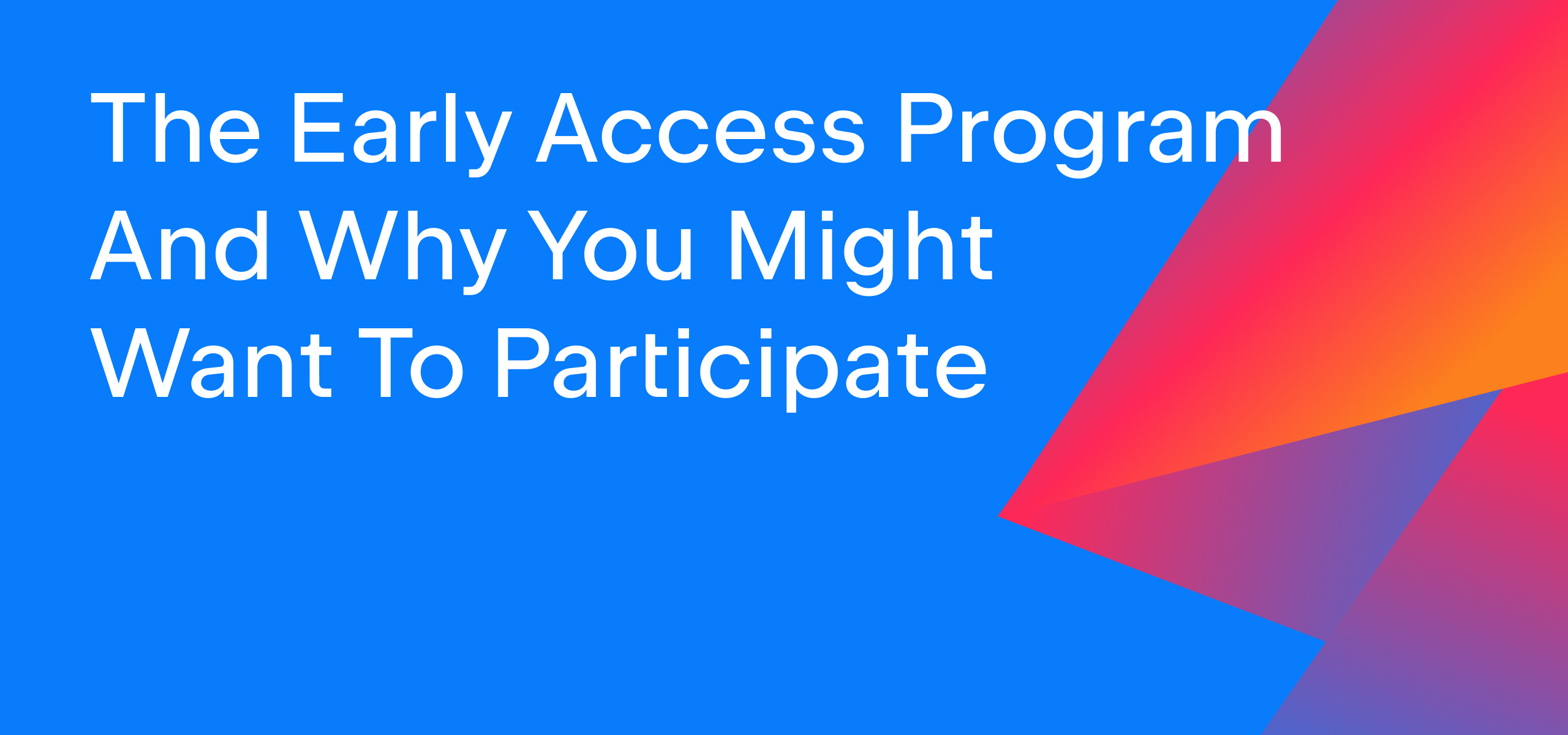
How does the EAP work?
TL;DR. We publish EAP builds weekly, you try them out for free. You comment, we fine-tune and improve the upcoming version based on your feedback. Rinse and repeat until it’s awesome.
In advance of the major release, we start rolling out a series of EAP builds that come out every week with the latest features we’re working on. This gives you the chance to test out the features and help us find any bugs in them. This also means we can try to fix the issues ahead of the next version.
Over the past 5 years, we’ve published 175 EAP builds that were downloaded more than 2,000,000 times.
We encourage users to use EAP builds on their real-life projects, and share their feedback with us. This feedback might be your thoughts and suggestions about a new feature or a bug-report about an issue you spot while coding. All feedback matters to us.
Below are some insights from our issue tracker that illustrate how the IntelliJ IDEA team and the IDE users collaborate to improve the quality of the product.
Since the beginning of 2022, we’ve received over 5,200 reports to our issue tracker. These tickets were submitted during the two Early Access Programs for v2022.1 and v2022.2 and after the IntelliJ IDEA major releases, accumulating the feedback from both external IDE users and the JetBrains team.
It’s worth noting that slightly less than half of these issues were created by IntelliJ IDEA external users, who continue to contribute greatly to the development of the IDE.
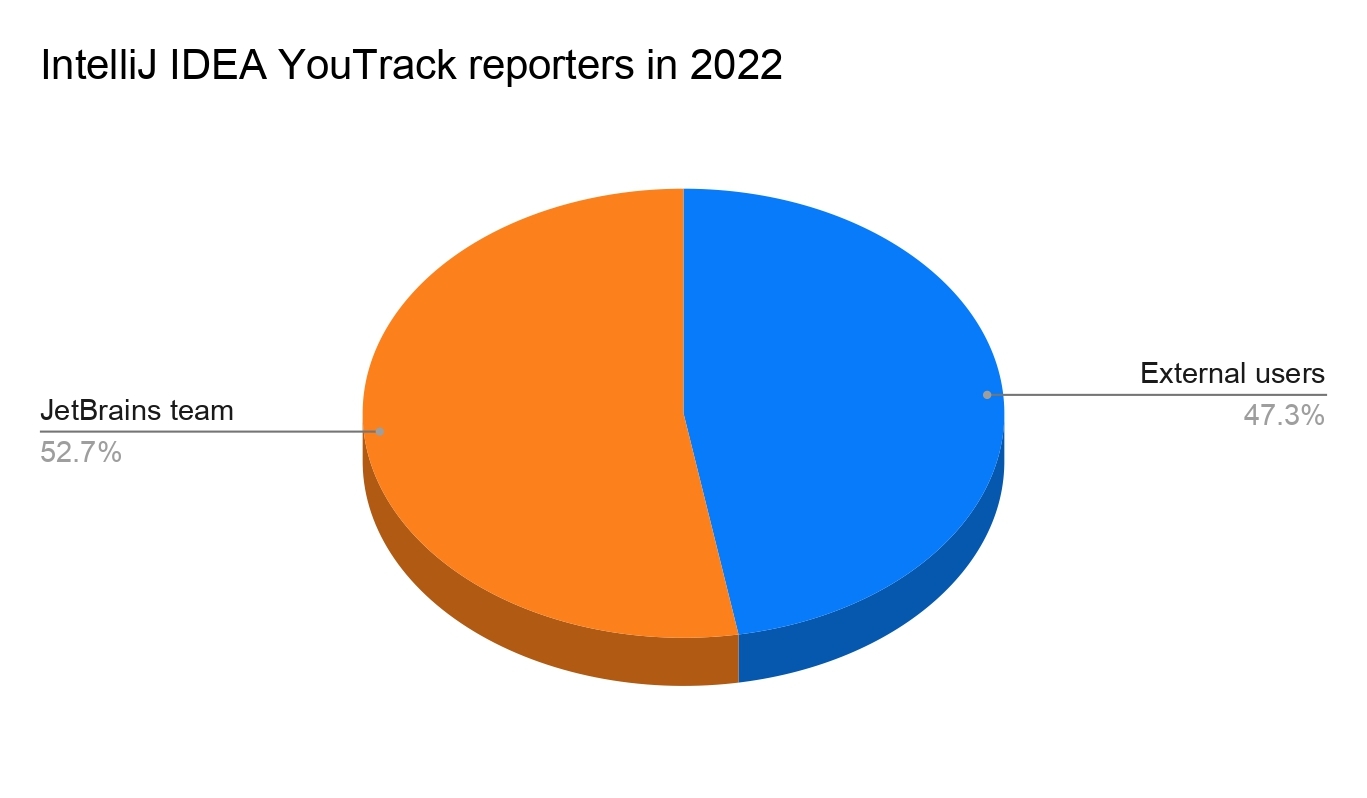
Out of all tickets created this year, 3,708 are bug reports totalling 70% of the overall workload. When it comes to bug hunting, our external users have provided us with 53% of all reports.
It’s important to note that we have already fixed 1,225 out of the 1,995 bugs reported by our users this year, which means we have already resolved 60% of the issues you’ve encountered since January 1.
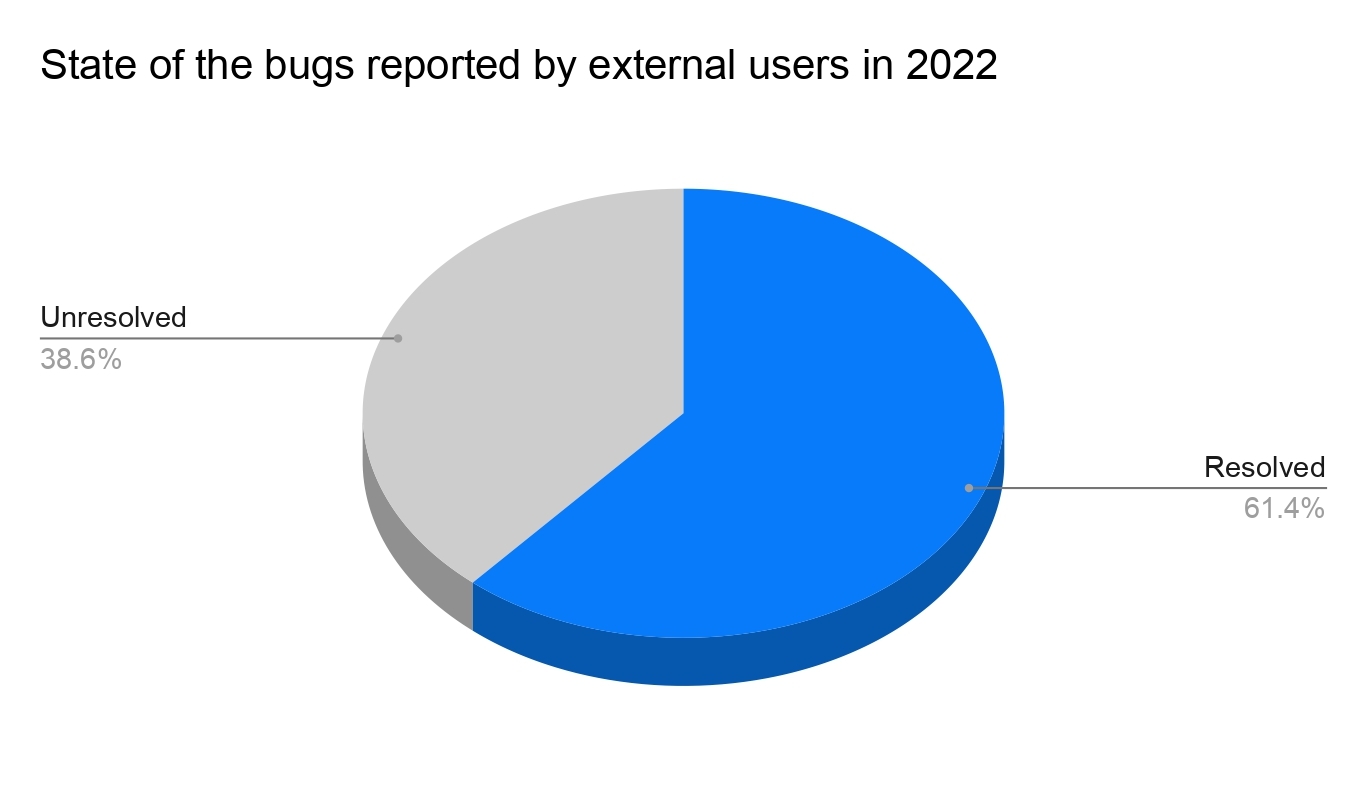
We continue to work on longer-standing issues and implementing new features in the IDE. While working on the first two major releases this year, we have fixed 2,032 bugs from previous years and added over 500 new features to IntelliJ IDEA.
Speaking specifically about the feedback we receive and process during the Early Access Program, there were 872 bugs caught in the 2022.1 and 2022.2 EAP builds – 655 were fixed while the evaluation program was being run.
We greatly appreciate your significant input and always listen to your feedback to improve the quality of our products.
How to submit your feedback
If you find a bug or have an idea of how your experience with the IDE could be improved, you can use the Submit Feedback option from the Help app menu or report it directly to our issue tracker.
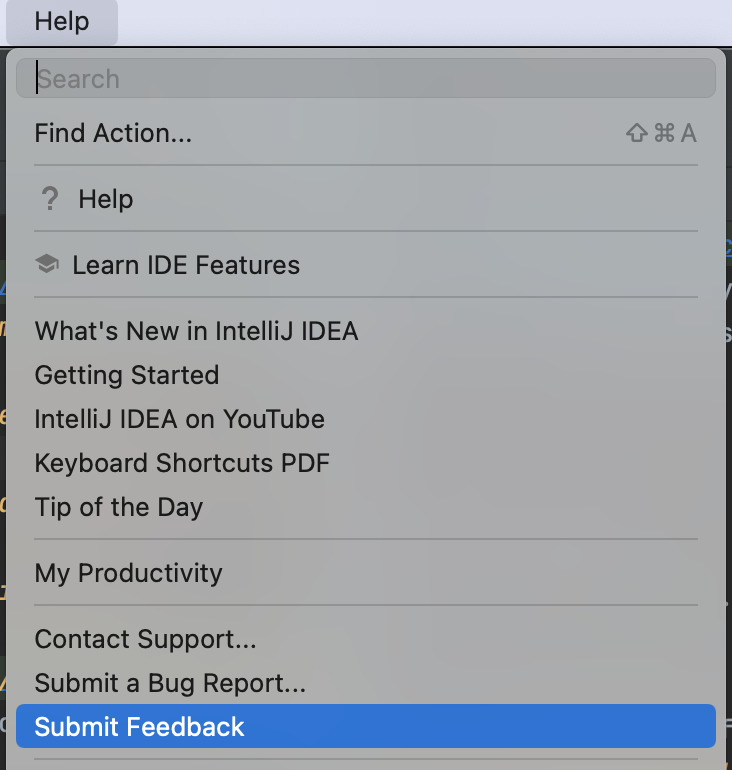
We’re currently testing the idea of in-IDE surveys that will provide a more convenient way to submit targeted feedback without leaving the IDE, so the experience with the functionality is still fresh in your mind. This approach will allow us to collect better data for further hypothesis analysis and decision making, and make development quicker.
For example, those who participated in the IntelliJ IDEA 2022.1 EAP were given the chance to share their thoughts about the redesign of the New project wizard.

The goal was to collect early feedback from our EAP users and see how this change would be welcomed.
Those who accepted the notification were given this feedback dialog:
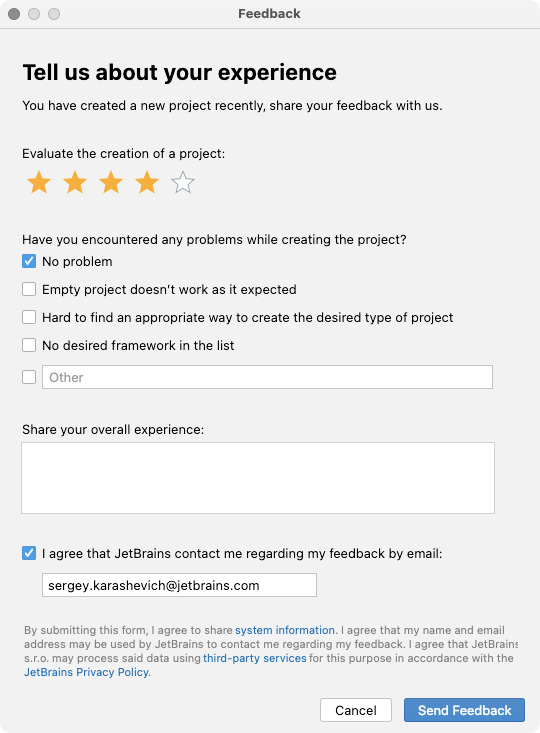
In the course of the IntelliJ IDEA 2022.1 Early Access Program we collected over 400 responses, and most of them rated the new design with 4 or 5 stars.
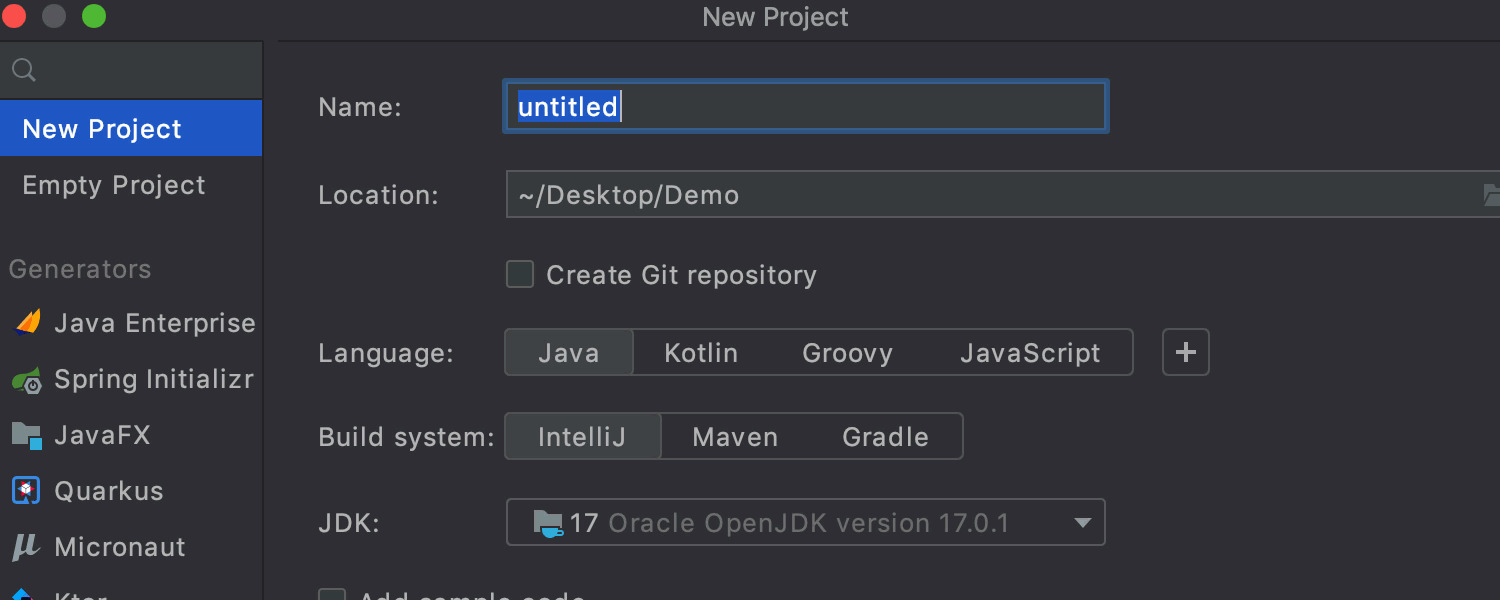
This positive feedback gave us confidence that the reworked UI for the New project wizard was clear to the users and its redesign was warmly welcomed. Also, we were directed towards some issues and had enough time to fix them so that the final version of the wizard had been polished in time for the v2022.1 release.
Sergey Karashevich, Team Lead in IntelliJ Onboarding
We’ll be implementing more of these in-IDE surveys in upcoming development cycles to make it easier for you to comment on the new features and report any issues you might find along the way.
Important note: We understand the importance of being able to concentrate and not being distracted during your tasks. We don’t want to interfere with your workflow, and we will only display these notifications during idle time and make it simple to opt-out (though, we’d be happy if you don’t!).
What’s an EAP build, and how do I get it?
Ready to become an EAP evaluator? Here’re a shortlist of everything you need to know:
- All EAP builds are free and don’t require a license. All you need is a JetBrains Account.
- EAP builds are valid for 30 days from their build date.
- You can get EAP builds from the Toolbox App, download them from the website, or use snaps for Ubuntu.
- EAP builds can be installed side by side with your stable IDE version.
- EAP builds are not fully tested and might be unstable, as the version is still a work in progress. Please keep this in mind when using them.
- EAP builds allow you to test out new features before they are released.
- The highlights of each EAP build are covered by the IntelliJ IDEA EAP blog posts. For more detailed information, release notes are provided.
The bottom line
Early Access Programs are an essential part of our development cycle. They provide our team with important data about how you interact with the product, giving us food for thought and grounds for decision making.
EAPs wouldn’t be successful without your involvement. We are looking for new ways to gain and process your feedback and encourage you to actively participate in making IntelliJ IDEA an even better tool to work with.
Keep on sharing your feedback – we’re always listening!
Happy Developing!
Subscribe to IntelliJ IDEA Blog updates



